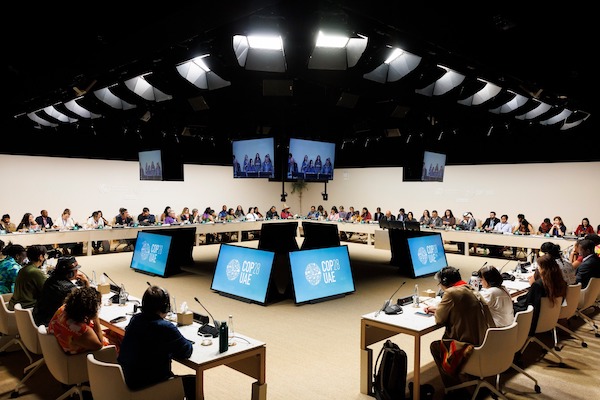COP28 Announces Increase in Carbon Emissions Instead of Reduction

COP28 The 28th United Nations Climate Change Conference continues to convene in Dubai, and according to a research report released on the 5th, carbon emissions caused by the use of fossil fuels in all countries of the world in 2023 not only did not decrease, but also hit a new record high, with an annual increase of 1.1%, estimated to reach 36.8 billion metric tons. This makes it even more difficult to achieve the Paris Climate Accord's goal of limiting global warming to 1.5 degrees Celsius by 2015. Pierre Friedlingstein, a professor at the University of Aixter in the UK who led the study, suggested that COP28 countries should accelerate consensus on cutting carbon emissions from fossil fuels and at least curb global warming to within two degrees Celsius.
According to the report, which was compiled by more than 90 organizations and 121 scientists, in addition to greenhouse gas emissions caused by fossil fuels, deforestation and other landscape changes will also cause an increase in carbon emissions; if this is included in the statistics, the global carbon emissions are estimated to be as high as 40.9 billion metric tons. According to the Copernicus Climate Change Service, the European Union's climate monitoring organization, November 2023 will see the highest temperature ever recorded, with two of the days being 2 degrees Celsius higher than before the industrial revolution, and the global average temperature in 2023 will be 1.46 degrees higher. The year 2023 also saw a series of extreme climate events around the world.
The latest version of the draft global climate agreement released by the United Nations has proposed three options for the future, which will be negotiated by a delegation of nearly 200 countries, ranging from a mandatory requirement or call for the phasing out of fossil fuels to no mention of the phasing out of fossil fuels at all. Oil-producing countries such as mainland China and Saudi Arabia in the Middle East are opposed to the phase-out and favor not mentioning it at all. Seeing the conflict between the economy and the environment, a faster and more effective zero-carbon emission technology must be discussed. The U.S. President's Climate Envoy, Mr. Kerry, also put forward the Nuclear Fusion International Participation Program at COP28, emphasizing that zero-carbon emission technology may be the best tool to combat climate change, and that nuclear fusion technology will cause a major change in the world. Currently, 35 countries have participated in the program, which focuses on research and development, supply chain, regulation and safety.
- 97 reads
Human Rights
Ringing FOWPAL’s Peace Bell for the World:Nobel Peace Prize Laureates’ Visions and Actions

Protecting the World’s Cultural Diversity for a Sustainable Future

The Peace Bell Resonates at the 27th Eurasian Economic Summit

Declaration of World Day of the Power of Hope Endorsed by People in 158 Nations

Puppet Show I International Friendship Day 2020

